Beirut blast: President Emmanuel Macron demands political change
In emotional scenes, Emmanuel Macron hugs Beirut residents, vowing French aid won’t go through its corrupt political system.
French president Emmanuel Macron was mobbed by appreciative Beirut residents in the heart of blast ravaged Gemmayzeh - an area populated by Francophile Christian Lebanese - as he promised that French aid would not be channelled through the Lebanese political system.
In extraordinary scenes, Mr Macron hugged residents who begged him to hold their corrupt rulers to account.
As other countries dispatched emergency medical aid, field hospitals, rescue experts and tracking dogs in the wake of the massive Beirut explosion, Paris spearheaded international support, with many flights carrying medical aid, field hospitals, rescuers and tracking dogs.
Mr Macron was the first international leader to reach out to the grieving people of Lebanon, devastated at the loss of life which has now reached 157 with 5000 injured and vast residential areas of Beirut ravaged.
Mr Macron immediately called for “political change,’’ noting: “This explosion should be the start of a new era,” and demanding an immediate audit of the Lebanon central bank otherwise the country “would sink’’.
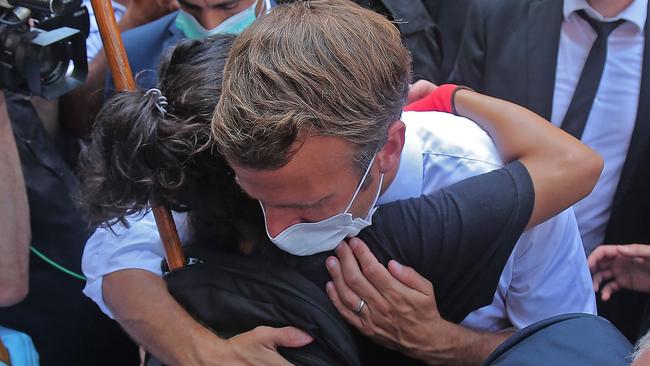
He said: “If there is no audit of the central bank, in a few months there will be no more imports and then there will be lack of fuel and of food.”
No Lebanese politician has been out in public since the explosion of 2750 tonnes of ammonium nitrate at the warehouse port and their public utterances, promising investigations and accountability for those who failed to heed safety warnings, have been widely dismissed by a disbelieving public.
France was a colonial ruler of Lebanon until the end of World War II and Mr Macron’s appearance has been viewed as welcome intervention by the international community to hold Lebanese warlords to account. A few commentators suggested the walkabout was an imperialist stance, but on the streets there was nothing but an enthusiastic and desperate welcome for him.
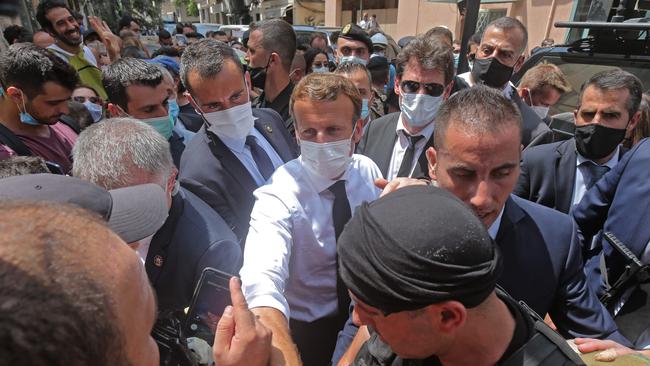
The anger that has been simmering for eight months amidst the everyday struggles of an economic crisis, severe devaluation of the currency and frustration of a political deadlock has coalesced into a potent fury against the ruling classes.
The crowd chanted for the fall of the political regime and held signs saying “revolution’’.
As bystanders screamed to him: “Do not give money to our government, we don’t trust them”, Mr Macron pushed aside his bodyguards to hug one woman and said simply “I know’’.
Mr Macron later confirmed France wouldn’t give “blank cheques to a government that doesn’t have the trust of its own people,’’ and said he would call for a “new political initiative’’.
Not even a fortnight ago Lebanon’s prime minister Hassan Diab rejected France’s offer of financial assistance for political reform to help the country overcome escalating levels of poverty and hardship.
But on Thursday Mr Diab and the Lebanese president Michael Aoun met with Mr Macron only minutes after the French president publicly insisted Lebanon had “to change the system, to stop the division of Lebanon, to fight against corruption”.
Mr Macron stressed he was not in the country to endorse the regime and did not want French aid to end up in corrupt hands. He said he would be back on September 1 to ensure French aid was being distributed to the people.
‘No words can describe the horror’
Earlier, Mr Aoun attempted to placate his furious nation, telling the country in a forlorn national address: “No words can describe the horror that hit Beirut last night, turning it into a disaster-stricken city.’’
On the narrow streets as residents cast aside their shock and pain with every shard of glass swept away in self-organised neighbourhood clean-up operations, a bitter anger is rising, and the ruling classes and endemic corruption are the targets.
The death toll is expected to rise as searchers work in the rubble, and people succumb to internal injuries from the enormous shockwave that followed the port explosion.
The Australian embassy suffered extensive damage, including huge reinforced glass windows strewn on the street below, the glass buckled and twisted from the seismic blast force.
A two-week state of national emergency has been imposed but locals are looking to the international aid effort to relieve their plight rather than the Lebanese state. The World Health Organisation has sent 20 tonnes of medical supplies; Britain donated $US6m and dispatched a Royal Navy ship; and Algeria, Jordan, Egypt, the United Arab Emirates and Israel sent emergency aid. Australia has donated $2m to aid charities.
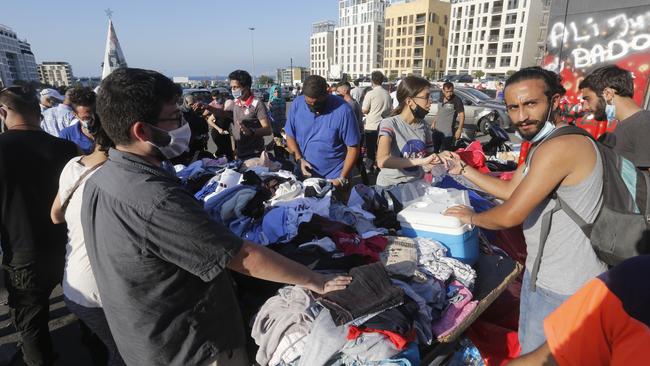
Offering a glimmer of hope amid the carnage, a French rescuer said there was a “good chance of finding … people alive”, especially a group of about eight believed to be trapped in a room under the rubble.
So far, no one has taken responsibility for the suspected cause of the blast: 2750 tonnes of ammonium nitrate stored in Warehouse 12 for more than six years, despite court cases and repeated requests from port authorities and Customs for its removal.
On Wednesday, port and Customs officials were placed under house arrest pending an investigation into the cause of Tuesday’s blast, which has left 300,000 people homeless at a time the country is in economic collapse because of corruption and decades of political deadlock. The chemical stash — from Georgia bound for Mozambique — was unloaded in 2013 from an unseaworthy Russia-owned, Moldova-registered cargo ship. In the Beirut court case initiated by the captain and three crew who were held on board for nearly a year, the ship was described as a “floating bomb’’ and they were released because of the danger they faced.
Only six months ago, a government team inspecting the warehouse warned it would “blow up all of Beirut’’ if the ammonium nitrate was not removed, Reuters reported. Port general manager Hassan Koraytem told OTV the chemicals had been stored in the warehouse on a court order, knowing it was dangerous but “not to this degree”.
Customs director-general Badri Daher told Lebanon TV station LBCI: “We requested that it be re-exported but that did not happen. We leave it to the experts and those concerned to determine why.”
Requests to the Beirut judiciary were made in 2014, 2015, 2016 and 2017 for the material’s removal.
Such is the distrust and political paralysis that former prime minister Saad Hariri, whose father and 21 others were killed in a truck bomb attack in 2005, has called on international partners to help investigate the blast that has “once again killed the heart of Beirut”.
“We ask the government … for a transparent judicial and security investigation without compromise, denial or circumventing the truth,” he said.
On the streets, people were galvanising into protest groups.
Mohammad Suyur, 30, told local newspaper The Daily Star an anti-government protest movement that launched in October was being reignited. “The last thing in the world they (politicians) care about is this country and the people who live in it,” he said. “We can’t bear more than this. This is it. The whole system has got to go.’’
Glazier Abdo Amer has slashed his fee for replacing windows, with many struggling with the 80 per cent devaluation in the currency. “You think the state will take up this work? Actually, let them step down and leave,’’ he said


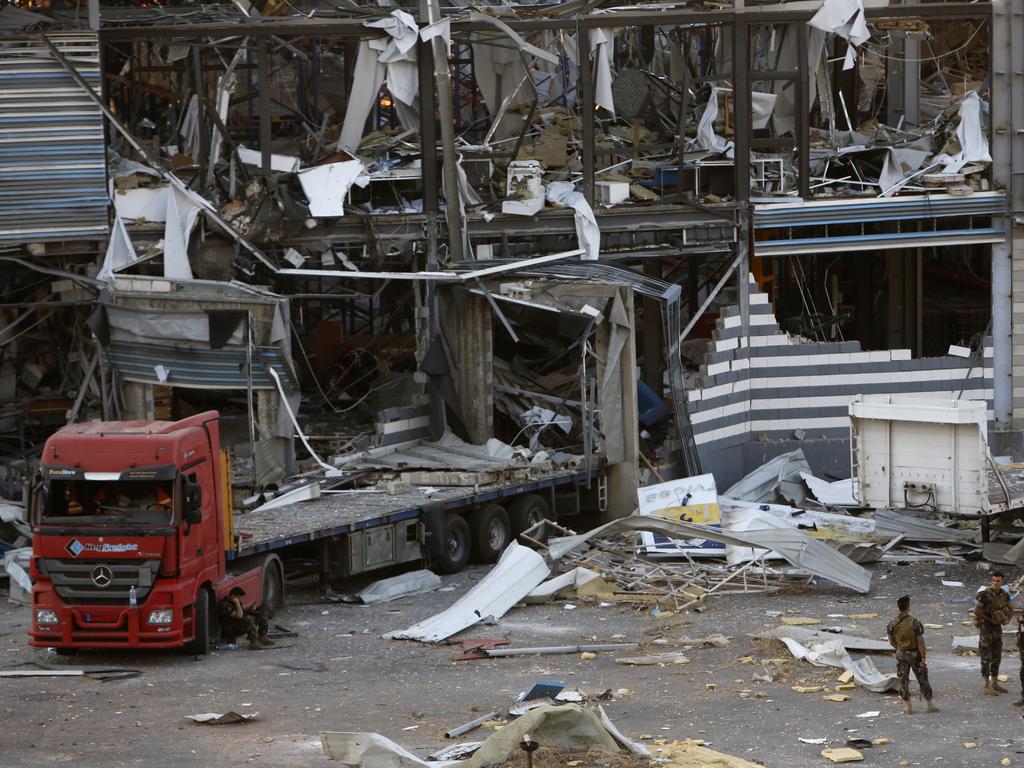
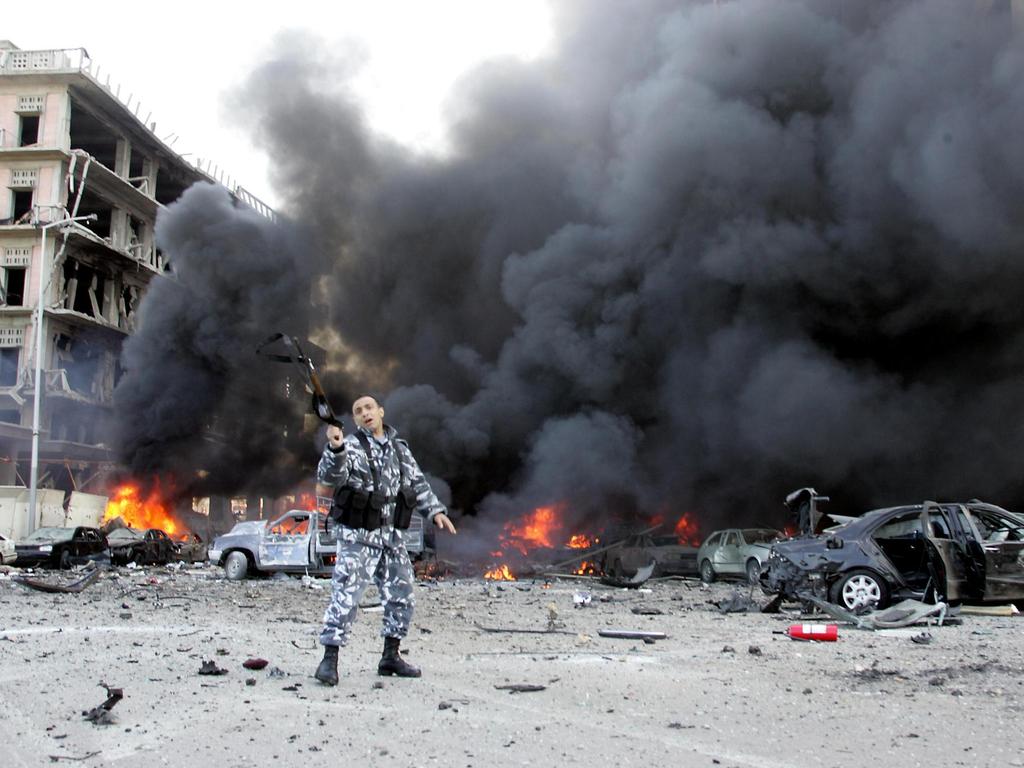
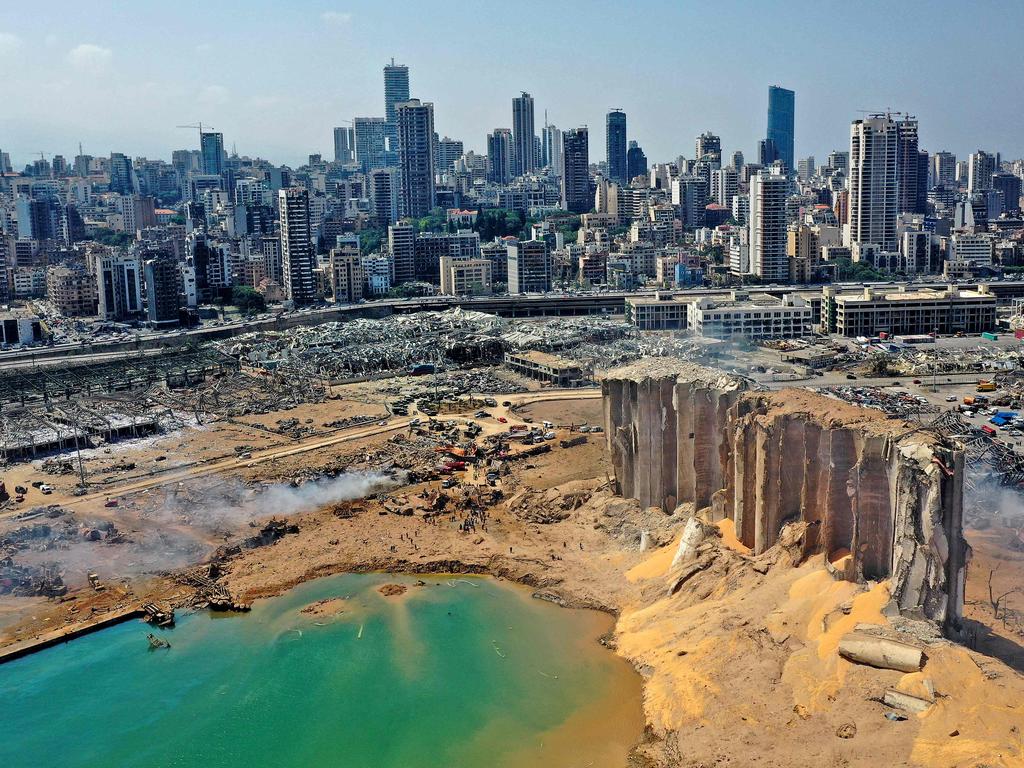
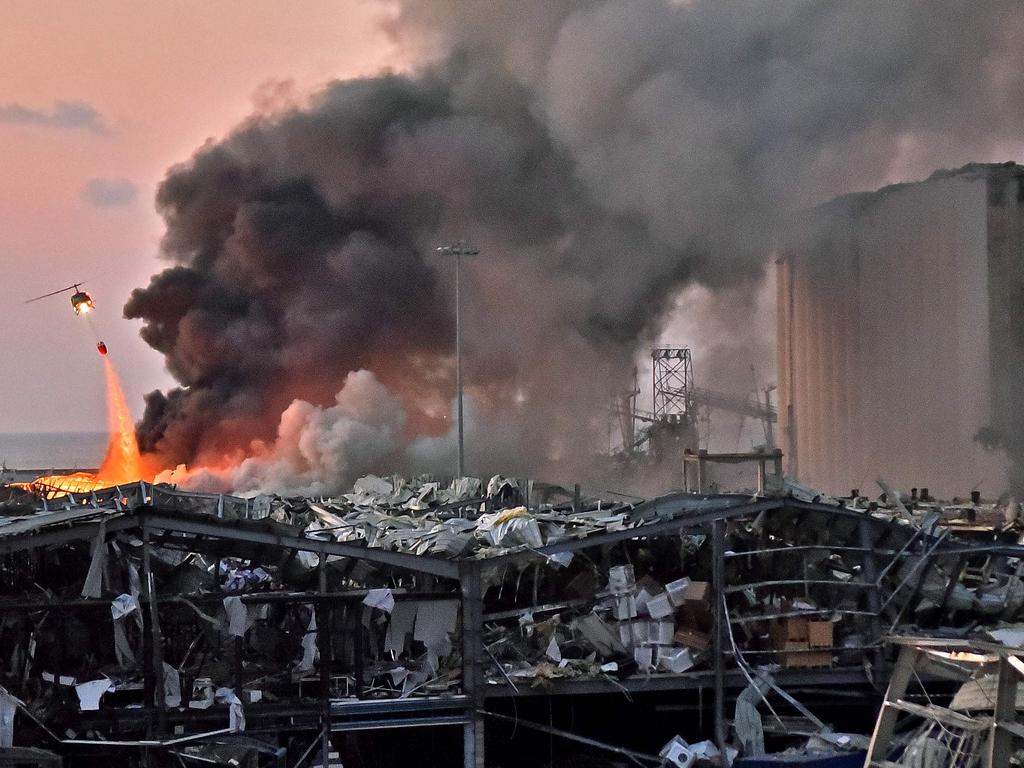


To join the conversation, please log in. Don't have an account? Register
Join the conversation, you are commenting as Logout